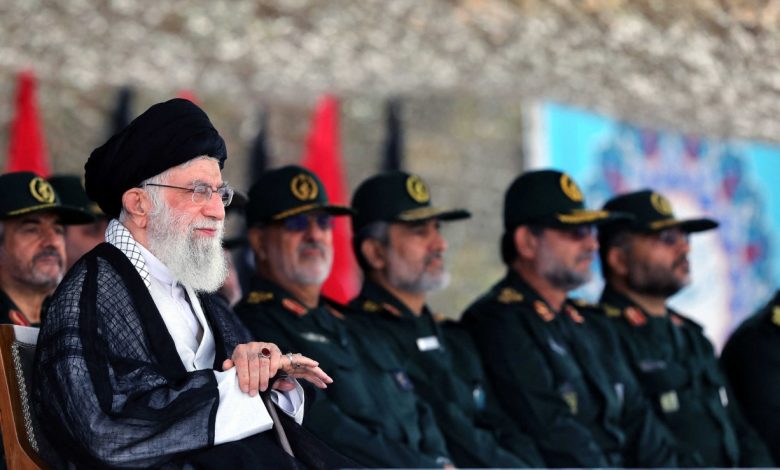Will the IRGC’s insistence on its missile program and regional influence thwart the Vienna negotiations?

The Iranian Revolutionary Guard said: Its ballistic missile program and regional influence, represented by its cross-border activities red lines, will not be influenced by the intentions, hopes, and aspirations of American rulers.
In a statement marking the anniversary of the Islamic Republic referendum, the Revolutionary Guards Corps announced that Iran’s missile program and regional influence will continue, regardless of the outcome of negotiations, Iran International reported.
In a press statement yesterday, Iranian Foreign Minister Hossein Amir-Abdollahian criticized the imposition of new sanctions targeting Iran and entities with close ties to the Revolutionary Guard; in particular its unit for ballistic missile development.
Iranian agencies quoted Hossein Amir-Abdollahian as saying during a meeting with his Uzbek counterpart Umar Razak Ov in Tunxi, southeast China, yesterday: “Everything now depends on whether the US wants to be realistic or responsible for the failure of the negotiations”.
Last week, Abdollahian said: Removing the IRGC from the sanctions list is “the most important issue in the negotiations”.
As the Vienna negotiations faltered, the United States first imposed sanctions yesterday on a procurement agent in Iran and his affiliates; due to their role in supporting Tehran’s ballistic missile program.
The US Treasury said: “It made this decision after the Iranian missile attack on Erbil in Iraq and a Houthi militia rocket attack on Saudi Arabia this month, which the ministry said was backed by Iran, as well as other rocket attacks by Iranian proxies on the UAE”.
Iranian Foreign Ministry spokesman Saeed Khatibzadeh said yesterday: “Washington continues to violate UN Security Council Resolution 2231, which is linked to the 2015 agreement, though it says it wants to revive the agreement”.
Reuters quoted Khatibzadeh as saying: “This move is yet another indication of the US government’s bad intentions towards the Iranian people as it continues its failed policy of putting maximum pressure on Iran”.
In a related vein, sources close to the nuclear negotiations in Vienna told Persian-language Radio Farda yesterday that the U.S. administration had demanded a commitment from Iran to suspend any attempts to retaliate for the killing of Qassem Soleimani, who was in charge of the IRGC’s external operations, including intelligence activities, and nurturing groups that owe ideological allegiance to the Iranian regime.
One source said: U.S. intelligence agencies have detailed information about Iranian plans against some former U.S. officials whom Tehran accuses of involvement in Soleimani’s death, and in such circumstances the Iranian government’s request cannot be approved by Washington.
A few weeks ago, the Associated Press quoted current U.S. officials as saying that the threats were discussed during the nuclear talks in Vienna, which demand that Iran lift all sanctions dating back to the era of former U.S. president Donald Trump.
The State Department has informed Congress that it is paying more than $2 million per month for 24-hour security for former Secretary of State Mike Pompeo and his top aide, former Iran envoy Brian Hook, because of “serious and credible” threats from Iran.
Democratic Majority Leader Steny Hoyer told Iran International: The Revolutionary Guard must remain on the list of terrorist organizations, and the nuclear agreement must include the Iranian regime’s destructive activities in the region.
He added: The IRGC is a terrorist organization, and I agree to remain known by this title.
Huber said: “I urge that Iran’s destructive activities to destabilize the Middle East be addressed in the Nuclear Revival Agreement”.
“The Biden government will continue the Vienna talks as long as it believes there is a possibility of reviving the nuclear agreement”, Hoyer said.












